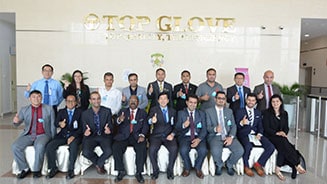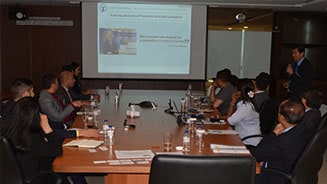

Here at Trident, we believe that a business environment that operates with integrity needs to be cultivated not only by corporations but also the public bodies that serve to guide and regulate the industry.
The business sector can often serve as a check on government and its encroaching powers. Corporates are embedded in the daily lives of their employees and customers, and can substantially improve their quality of life through the delivery of quality goods at reasonable prices and time scales. On the other hand, companies can also be the source of public-private sector corruption in their pursuit of growth. Their commercial clout offers them the substantial power to distort market forces, force customers into purchasing substandard products, and enact immense harm to the nation as a whole.
A comprehensive, national programme is a practical solution to solving the corruption issues that take place when the public and private spaces come into contact. A national integrity programme can save a country millions of dollars in corruption-related costs, and protect the integrity of a country’s reputation on a global stage. The programme will work to identify, analyse and remove any potential inhibitors to essential government goals such as the reduction of poverty or the development of effective infrastructure.
Trident Integrity develops comprehensive national integrity programmes which empower Government to mitigate many of the corruption challenges presented by businesses, especially in developing economies. Trident draws on the experience of its staff who have been involved in crafting policy and programmes for combating corruption with global organisations such as Transparency International and Malaysia’s Anti-Corruption Commission (MACC).
Trident Integrity has worked with several international bodies on projects aimed at developing national integrity programmes, including public agencies in Afghanistan and Bhutan. Click through below to learn more about our international work.
Case Studies
Bhutan’s Anti-Corruption Commission
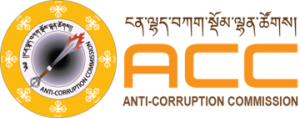
In 2005, the King of Bhutan decreed the establishment of an Anti-Corruption Commission (ACC) as a response to the rise of corrupt practices in its business sector following the emergence of the country in the international stage. The ACC was given a mission “to eliminate corruption through leading by example, achieving excellence in partnerships, and mainstreaming anti-corruption strategies/measures in public/private organizations.”
In June 2014, the country launched its National Integrity and Anti-Corruption Strategy which was created to establish effective integrity infrastructure to combat private sector corruption. Under this strategy, the ACC engaged the assistance of Trident CEO Dr Mark Lovatt – then working with Transparency International Malaysia – to develop the basic elements of an effective private sector integrity programme (PIP).
In Phase 1, Trident worked with the ACC to:
Create materials that lay the groundwork for future development of the PIP, including: Corporate Integrity Pledge programme Business Code of Conduct Materials for training and resource packets.
Review of Bhutan’s use of Integrity Pacts and integrity contract clauses
Phase 2 is currently being developed by Trident.

Business Integrity Network Afghanistan (BINA)
The Business Integrity Network Afghanistan (BINA) was started by Harakat, the Afghanistan Investment Climate Facility, in order to engage the private sector in promoting business integrity. BINA’s overall mission was to bring together a group of companies who would work together to promote business integrity practices in order to drive change in the developing economy.
In 2015, BINA engaged the services of Trident Integrity to act as an independent entity to conduct a review of its framework and tools, and to formulate methodologies for the organisation to conduct integrity checks on its members.
Trident worked with BINA to:
Develop a review process for Business Integrity Certification process Develop internal policies, rules and regulations for the national integrity programme Develop plans for future communication and monitoring processes Develop an incentive scheme for BINA to engage potential partners Develop a training programme and materials for use by BINA


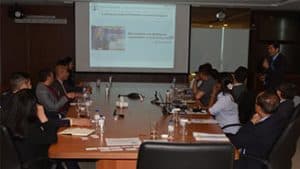
A comprehensive national integrity programme can be difficult to implement but it is not impossible. Its benefits vastly outweighs the challenges posed by businesses reluctant to buy-in. A national private sector programme can help ensure that the corrupt and destructive companies are identified, sanctioned and driven out of business in favour of those who are actively working to deliver valuable goods and services in an ethical manner.
Trident Integrity has experience in developing such programmes for government bodies in various capacities. We work to deliver programmes that are tailored to the specifics of every environment, based off international best practice and lessons we’ve learned from various initiatives across the Asia-Pacific region.
A standard national integrity programme may include elements such as:
Corporate Integrity Pledge (CIP) Business Code of Conduct (BCoC) Integrity Pacts for public procurement Corporate Integrity System (CIS) for Government-owned companies Training on integrity Public – private dialogues Online resource portal
Case Studies
Bhutan’s Anti-corruption commission
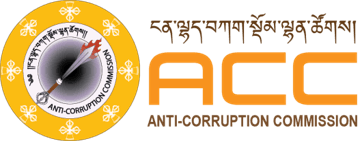
In 2005, the King of Bhutan decreed the establishment of an Anti-Corruption Commission (ACC) as a response to the rise of corrupt practices in its business sector following the emergence of the country in the international stage. The ACC was given a mission “to eliminate corruption through leading by example, achieving excellence in partnerships, and mainstreaming anti-corruption strategies/measures in public/private organizations.”
In June 2014, the country launched its National Integrity and Anti-Corruption Strategy which was created to establish effective integrity infrastructure to combat private sector corruption. Under this strategy, the ACC engaged the assistance of Trident CEO Dr Mark Lovatt – then working with Transparency International Malaysia – to develop the basic elements of an effective private sector integrity programme (PIP).
In Phase 1, Trident worked with the ACC to:
- Create materials that lay the groundwork for future development of the PIP, including:
- Corporate Integrity Pledge programme
- Business Code of Conduct
- Materials for training and resource packets.
- Review of Bhutan’s use of Integrity Pacts and integrity contract clauses
Phase 2 is currently being developed by Trident.

Business Integrity Network Afghanistan (BINA)
The Business Integrity Network Afghanistan (BINA) was started by Harakat, the Afghanistan Investment Climate Facility, in order to engage the private sector in promoting business integrity. BINA’s overall mission was to bring together a group of companies who would work together to promote business integrity practices in order to drive change in the developing economy.
In 2015, BINA engaged the services of Trident Integrity to act as an independent entity to conduct a review of its framework and tools, and to formulate methodologies for the organisation to conduct integrity checks on its members.
Trident worked with BINA to:
- Develop a review process for Business Integrity Certification process
- Develop internal policies, rules and regulations for the national integrity programme
- Develop plans for future communication and monitoring processes
- Develop an incentive scheme for BINA to engage potential partners
- Develop a training programme and materials for use by BINA
A comprehensive national integrity programme can be difficult to implement but it is not impossible. Its benefits vastly outweighs the challenges posed by businesses reluctant to buy-in. A national private sector programme can help ensure that the corrupt and destructive companies are identified, sanctioned and driven out of business in favour of those who are actively working to deliver valuable goods and services in an ethical manner.
Trident Integrity has experience in developing such programmes for government bodies in various capacities. We work to deliver programmes that are tailored to the specifics of every environment, based off international best practice and lessons we’ve learned from various initiatives across the Asia-Pacific region.
A standard national integrity programme may include elements such as:
- Corporate Integrity Pledge (CIP)
- Business Code of Conduct (BCoC)
- Integrity Pacts for public procurement
- Corporate Integrity System (CIS) for Government-owned companies
- Training on integrity
- Public – private dialogues
- Online resource portal

Company Growth
Completely synergize resource taxing relationships via premier niche markets. Professionally cultivate.

Get Revenue
Completely synergize resource taxing relationships via premier niche markets. Professionally cultivate.

Why Choose Us
Completely synergize resource taxing relationships via premier niche markets. Professionally cultivate.

Business Plans
Completely synergize resource taxing relationships via premier niche markets. Professionally cultivate.

Risk Management
Leverage agile frameworks to provide a robust synopsis for high level overviews. Iterative approaches to corporate strategy foster collaborative thinking to further the overall value proposition. Organically grow the holistic world view of disruptive innovation via workplace diversity and empowerment. Bring to the table win-win survival strategies to ensure proactive domination. At the end of the day, going for
More and more consulting firms are complementing the strategic deliverable by providing the means to implement the recommendations, either with the consultants themselves. Consultancy firms target company executives.
Benefit of Training
I am text block. Click edit button to change this text. Lorem ipsum dolor sit amet, consectetur adipiscing elit. Ut elit tellus, luctus nec ullamcorper mattis, pulvinar dapibus leo.
- Those who do not know how to pursue
- Pleasure rationally encounter
- Consequences that are extremely painful.
- Nor again is there anyone who loves or pursues


